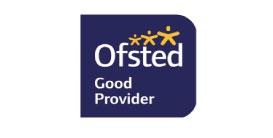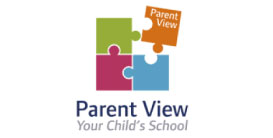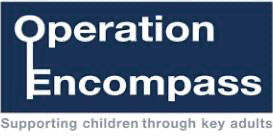Year 2
Welcome to Year 2!
In Class 2, the teachers are Mrs Neave and Miss Moore they are supported by Mrs Airton and Miss Hughes. Please find below a brief outline of the topics to be covered this year and our daily/weekly routines which are explained in the Year 2 class booklet. We follow a two-year rolling programme in Key Stage 1 and we try to plan as much of our learning as possible around our current topics. This creates an immersive and exciting learning experience for the children. Here is an overview of the topics to be covered over the coming year in Class 2:
| Terms | Topics Covered | Brief Outline |
| Autumn 1 | Far, Far Away | This topic follows on from foundation stage where children begin to learn about simple traditional tales. It introduces children to a wider range of tales and focuses on identifying key words and story language used by authors to engage the reader. This topic makes links with history where children are introduced to some of the most famous and significant kings and queens of England going back in time chronologically. Children compare monarchs of different times that lived in the same castle. They consider how we learn about the past and identify some of the features of castles, how they have changed and why they were built. In science, children build on their learning in Year 1 to deepen their knowledge about different materials. Children explore a range of materials and learn to group, sort and classify materials based on their properties. They conduct investigations to explore how different materials are better suited for different objects through traditional tales. |
| Autumn 2 | London’s Burning | During this topic children use sources of evidence to become historians and discover what London was like in 1666. They make simple comparisons between then and the present day and learn how the events on 2nd September 1666 have had an impact on our life today. Children are introduced to key historical individuals, such as Thomas Farriner, Samuel Pepys, King Charles II and Christopher Wren. They will have the opportunity to study evidence, such as Samuel Pepys’ diary and objects left behind after the fire, to help them form opinions about what happened over 350 years ago. During Geography lessons children learn about their own country. They will use atlases and maps to discover the different countries of the United Kingdom and regions within England. They will identify the capital city of England and explore places and monuments linked to the great fire which are still evident today. |
| Spring 1 | Take One Picture | In this topic children explore books written by James Mayhew to learn about the artist Vincent Van Gogh and his impact on art and design. They will compare artwork by artists such as Claude Monet and Georges Seurat using the James Mayhew series of books and learn to describe similarities and differences making links to their own work. Children learn about the places Van Gogh visited and use maps and atlases to identify the 7 continents and 5 oceans of the world. They identify which continent the UK in. |
| Spring 2 | Healthy Me | This topic provides children with the opportunity to learn about keeping physically as well as mentally healthy. Children are introduced to recipes and use a range of tools during design technology lessons to design and make their own healthy food choices. They explore a range of equipment and learn about the importance of safety and hygiene when preparing food. Children identify different food groups and learn the importance of a balanced diet and how to plan a healthy meal. They explore the adventures of Supertato by Sue Hendra and use descriptive phrases to create their own superhero vegetable characters during English lessons. |
| Summer 1 | Author Study | Throughout this unit of learning each class focuses on a specific author and uses their stories and series of books as a stimulus for writing. Year 1 children explore the famous tales by Julia Donaldson and Year 2 children delve deep into the world of the long-standing author Dick King Smith. They make links between texts and discuss similarities and differences between Dick King-Smith’s stories and other stories they have read. This topic encourages children to explore different authors and promotes the love of reading. |
| Summer 2 | The Secret Garden | During the Secret Garden topic children learn about a variety of common, wild and garden plants and trees and describe their basic structure. They build on their learning in Year 1 by observing how different seeds and bulbs grow into mature plants. Children investigate the requirements of plants to stay healthy through working scientifically to create their own experiments as young scientists. Children explore their school grounds using first-hand sensory exploration and observations to investigate its key features. They devise simple maps, using map symbols to represent their observations. Children reflect upon the data collected to answer how their school grounds support and encourage plant life. Children will explore the artwork of Georgia O’Keeffe observing her use of line and colour to create paintings and drawings of flowers. This topic encourages children to look at the beauty of the world around them, look after and appreciate the world in which we live. |
Class Booklet:
Home Learning:
Home learning will be set on a Friday either on Seesaw or via a paper-based task. Home learning should be completed by the following Thursday. Children should be able to attempt home learning independently, but may need some adult support to help them keep on task and to answer any questions if they get stuck. They may need some support with typing or annotating their work using the SeeSaw tools. Home learning tasks are normally English or maths based, but can take the form of topic or research based activities.
Spellings:
The children will receive new spellings every Friday and will be tested on these words the following Friday. The spellings children are given link to the spelling pattern we have been learning in class that week. Please use the ‘look, cover, write, check’ method in their yellow spelling books to help the children learn their spellings. This is part of your child’s home learning each week and yellow books are required to be in school every Thursday.
Reading :
Please encourage your child to read their reading books as often as possible at home. It is beneficial for your child to read daily. They don’t have to complete a book each night, but a couple of pages every day is extremely valuable to making good progress in reading. Your child can change their book as much as necessary. In Year Two we encourage children to take ownership of their reading and support them to ask to change their book once they have completed their current book. We will support with this as much as possible as we understand many children will need help with this. Please send your child’s reading book to school every day. We ask you to support your child with their reading by reading with your child 3 times per week as minimum. Please record each time your child reads to an adult at home using Boom Reader. This is a digital reading record which helps us identify children who do not have the opportunity to read at home. Your support with this is greatly appreciated.
PE :
Our PE sessions in Year 2 are on Tuesdays and Wednesdays this half term. Mrs Barnes will be teaching PE on a Wednesday, but this is subject to change each half term to ensure children experience a wide range of enrichment opportunities in PE. Parents will be notified of any changes via School Comms. Please make sure that all earrings are removed on PE days, long hair is tied back and that your child has the appropriate PE kit for outdoor PE in school on those days.







